The West Bank and Jerusalem are “on fire.”
It’s a term we’re seeing used more and more across social media, the news, and opinion pieces talking about the current events in the occupied Palestinian territory. It’s also not a new phrase used to describe waves of suppression and resistance in Palestine, most recently the 2021 Unity Intifada that swept across historic Palestine.
So what exactly is unfolding in the occupied West Bank and Jerusalem right now, and why? What makes it different from what we’ve seen in recent history, and what does it mean for the future of Palestinian resistance to Israeli occupation and settler-colonialism?
The past few weeks have witnessed a noticeable intensification of Israel’s crackdown on Palestinians in the West Bank, targeting both ordinary civilians in their homes and villages, and armed resistance fighters and groups.
Simultaneously, armed settlers have been terrorizing Palestinian communities across the West Bank, often in the presence and protection of the Israeli military.
The current repression, and the resistance to it, are part of a larger, months-long campaign to quell growing Palestinian resistance, particularly armed resistance, which has seen a resurgence in areas of the West Bank.

The rise of Palestinian resistance in the face of a brutal crackdown
Since the start of October, Israeli forces have killed 15 Palestinians — four of them teenagers and children — primarily during night raids and arrest operations.
Over the past week alone, four Palestinians were killed: Mujahed Daoud, 31, from Salfit succumbed on Sunday to wounds he sustained during confrontations with Israeli forces the week prior. Mateen Dabaya, 20, and Abdullah Abu al-Teen, 43, a doctor and father of three, were both killed in a raid on the Jenin refugee camp early Friday morning. Later Friday night Israeli forces shot and killed Qais Imad Shujaiya, 23, after he carried out a shooting operation near the illegal Beit El settlement that injured one Israeli settler.
On Wednesday October 12, 17-year-old Osama Mahmoud Adawi was killed when Israeli forces shot him in the abdomen outside the Arroub refugee camp, south of Bethlehem in the West Bank.
As the Israeli military, police, and intelligence, at the behest of Israeli Prime Minister Yair Lapid, intensify their latest campaign, Palestinian resistance to the occupation’s tactics has swelled, alongside Palestinian fears of Israeli violence.
Over the past two weeks, two Israeli soldiers were killed in separate shooting operations: one at a military checkpoint outside the Shu’fat refugee camp in Jerusalem, and another at an army post in the Nablus area in the northern West Bank.
Notably, both shooters made it out alive — an uncommon occurrence in light of the Israeli army’s shoot-to-kill policy in the occupied territory, which Israeli authorities are actively refusing to change amid international pressures. Israeli Prime Minister Yair Lapid had noted that no soldier will be prosecuted “just so that we can receive applause abroad,” earlier in September.
In the manhunt to find the shooters, Israeli forces have enacted a number of collective punishment measures, including widespread road closures affecting the entire Nablus district, and the blockade of entire neighborhoods like Shuafat and the nearby Anata. The blockade of Shu’fat and the surrounding neighborhoods sparked a widespread civil disobedience campaign in neighborhoods across Jerusalem.
Protests in support of the civil disobedience campaign in Jerusalem have grown in the besieged Gaza Strip, where Palestinians have joined the calls for continued confrontation with the Israeli military apparatus.
At the same time, amid the Jewish Holiday season, Israeli settlers have been ramping up their attacks of Palestinians and their property in the West Bank, under the supervision and protection of Israeli forces.
The near nightly raids, deadly suppression of protests, collective punishment policies, and increasing settler violence have done little to stifle Palestinian resistance. Reports of daily protests and confrontations with Israeli forces across Jerusalem and the West Bank have persisted, while the Nablus-based Palestinian resistance group, Areen Al-Usud (Den of Lions), has continued to gain favor among the public, as it claims responsibility for increasing armed operations against Israeli military positions in the West Bank.
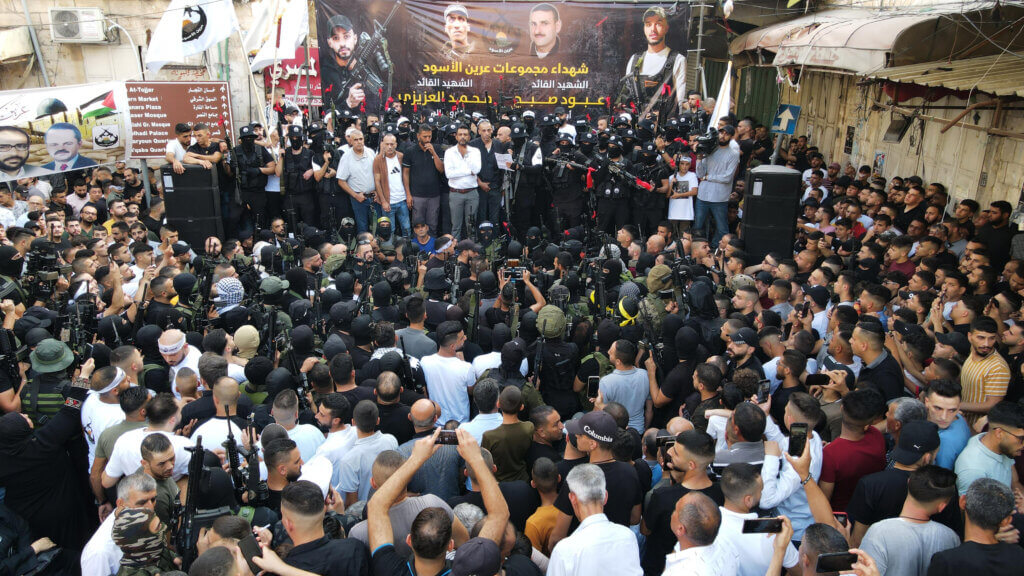
What does ‘Operation Break the Wave’ mean for Palestinians?
The large-scale campaign coordinated by the Israeli military and intelligence against Palestinians focuses on Nablus and Jenin in the West Bank, and the city of Jerusalem. Unsurprisingly for Palestinians, this recent intensification of assault by Israel builds on actions from previous years.
“The [Old City] is as it has been,” said Basil Kittaneh, researcher and resident of the Old City of Nablus, where burgeoning armed resistance groups, led primarily by youth unaffiliated with any political parties, has made its home.
“Every day residents are preparing for the expectation of something. Every night, the drone sounds are buzzing, and people aren’t sleeping and are in a state of fear,” he said.
After the peak of the Unity Intifada of last summer, an unforeseen change was birthed by the unification of Palestinians across borders — the effects of which continue to play out in the current moment.
As Palestinians collectively rose up last year, they were also collectively punished, including Palestinians with Israeli citizenship. In May of 2021, the Israeli Police launched “Operation Law and Order,” which targeted Palestinians with Israeli citizenship who participated in the activities of the Unity Intifada — particularly those who opened fire on Israeli lynch mobs that had invaded Palestinian neighborhoods and attacked its residents. Overnight, thousands of Palestinians with Israeli citizenship were arrested as a form of collective punishment, and what the Israeli security apparatus terms “deterrence.”

Operation Break the Wave was launched in March of this year to quell the growing armed resistance groups, primarily in cities like Nablus and Jenin, but it is important to view it as a continuation of “Operation Law and Order” in ‘48, in addition to “Operation Breaking Dawn” in Gaza.
Operation Break the Wave was launched in March of this year to quell the growing armed resistance groups, primarily in cities like Nablus and Jenin, but it is important to view it as a continuation of “Operation Law and Order” in ‘48, in addition to “Operation Breaking Dawn” in Gaza.
Spearheaded by Israeli army chief of staff Aviv Kochavi in tandem with the Israeli PM, the months-long Break the Wave campaign lies at the crux of what we are witnessing across occupied Palestine today. Kochavi has deployed Israeli soldiers not only in the West Bank, but also expanded military jurisdiction beyond the Green Line, into cities under the jurisdiction of the Israeli police. Palestinians with Israeli citizenship were under de facto military rule until the 1970s.
The implications of the current escalation by Israel is part of the broader Israeli settler-colonial project, driven by a right-wing Zionist ideology. In daily raids on Palestinian cities and towns, Israeli forces have arrested more than 1,500 Palestinians, according to the Israeli military chief.
“We will reach every city, neighborhood, alley, house, or basement for that purpose,” Kochavi said in September. However, the numbers are much higher than those reported by Kochavi, which has led to a systematic assault on Palestinians’ sense of stability and safety, as it implies that Israeli forces are not confined to a single geographical space, and instead targets everyone — not only those resisting, but those showing potential signs of resistance.
“The people [of the Old City] are alert all night,” Kittaneh explained to Mondoweiss. “Overall, there is an embrace of the resistance, but collective punishment is being enforced on all of Nablus.”
Resistance with no organized communication
Just as the Israeli military is not confined to geography, neither is Palestinian confrontation. This August witnessed a new dynamic between Gaza and the West Bank, where unlike the past decade Gaza became a mediating force for de-escalating resistance in the West Bank.
“Any dignified free person of the world will stand with us,” resistance fighter, S., said to Mondoweiss in September as the sounds of gunfire from Palestinian Authority forces, which have deployed to simultaneously quash the growing resistance groups in Nablus, were heard in the distance.

Although certain Palestinian towns and cities have become primary targets in Israel’s latest campaign, the attack by the Israeli military and intelligence is collective. More than 5,292 Palestinians have been arrested since January, according to the Palestinian Prisoners Society. Out of every 100 arrests, 14 of them are of children and minors, 766 of them detained since January.
Palestinian resistance ranges between armed resistance and popular unarmed resistance, which has expanded to the engagement of Palestinians in the diaspora and in exile. In this way, Israel’s fragmentation of Palestinian identity continues to be challenged and interrupted.
Given that this year has been one of the most deadly in terms of settler violence for the Palestinians since 2005, Palestinians now face a kaleidoscope of repression.
In parallel to the intensification of arrests, the Israeli military is intentionally escalating targeted extra-judicial assassinations of Palestinians, namely resistance fighters. This has resulted in the killing of more than 160 Palestinians in the West Bank alone (another 49 killed in Gaza during the August onslaught).
The role of the Palestinian Authority in quelling the resistance
As Israel continues its campaign against Palestinian resistance groups, the Israeli government and armed forces have found a tried and true partner in their suppression — the Palestinian Authority.
On September 19, the PA’s security forces, who maintain the controversial policy of security coordination with the Israelis, had raided Nablus city and arrested two Palestinian resistance fighters, Musaab Shtayyeh, 30, and Ameed Tbeileh, 21, the former having become the unofficial successor to Ibrahim al-Nabulsi, the “Lion of Nablus,” after his assassination earlier this summer.
In the process of the raids, which sparked heavy confrontations in Nablus and outcry against the PA across the West Bank, the PA’s security forces killed 55-year-old Firas Yaish. For much of the Palestinian public, the PA’s attack on the fighters in Nablus was an attack on the Palestinian resistance, and was just another example of the PA doing Israel’s dirty work.
The targeted attack on resistance in Nablus came almost a week after Lapid and Kochavi spoke about increased communications with Israeli military and PA security forces in targeting the Palestinian resistance. The Israeli stranglehold on the West Bank is largely dependent on the facilitation provided by the PA in surveilling, targeting, arresting activists, and re-directing Palestinian political involvement away from the discourse of liberation.
In the last months of 2021 and the first months of this year, the Palestinian Authority had undertaken a large-scale campaign against political opposition, including targeting university students and youth who showcase criticism or confrontation of the legitimacy of the Palestinian Authority.
Just last year, on June 24, 2021 PA security forces had invaded the home of Palestinian Legislative Council candidate Nizar Banat, beating him to death in front of his wife, Jihan, and their four children. No accountability has been reached for this crime of extra-judicial assassination, which his wife described to Mondoweiss as “closer to torture.”
While Kochavi was vowing escalation, Prime Minister Yair Lapid was speaking at the United Nations suggesting a revival of the two-state solution, directing his address to the Palestinian people, saying: “we can build your future together, both in Gaza and in the West Bank,” but only if Palestinians are disarmed and “prove that Hamas and Islamic Jihad are not going to take over the Palestinian state [that the PA] wants to create.”
In July of this year, before US president Joe Biden visited the region, senior diplomats from the Department of State made frequent visits to the region. However, most meetings with Palestinian representatives were focused on Majed Faraj and Hussein Al-Sheikh. Both are commanders in the Palestinian preventative security and civil administration affairs, and while widely unpopular amongst the Palestinian public, are being positioned as potential successors to the aging President, Mahmoud Abbas.
At 20, S. had only known the brutality of the second uprising, or the failure of the PA in providing services and protection for Palestinians. “We live under two occupations here,” he said resentfully.
Indications of what is to come
The current Israeli discourse signals the likelihood not only of escalating violence against Palestinians in a manner similar to Operation Defensive Shield in the early 2000s, but also the paternalism of Israel’s perception towards Palestinians.

Lapid made a point to say that Israel will help Palestinians build their future. The statement is under girded by a paternalistic colonial denial of the Palestinian right to self-determination and sovereignty, as he emphasizes the necessity of disarming Palestinians.
Indeed, the West Bank has been demilitarized under the PA ever since the end of the Second Intifada, yet now it appears that it was only temporary. As groups like Areen al-Usud continue to gain popular power and influence, the PA will likely step up its security coordination with Israel to ensure that the weapons being used against the Israeli occupation do not turn tomorrow against the PA.
Whether the wider Palestinian public chooses to rally around these emerging armed resistance groups, and turn this current moment into a full-blown uprising, remains to be seen. But the effects that these groups are having are most certainly being felt — both on social media and in the street.
With no change in sight regarding settler expansion and the theft of Palestinian lives, lands, and resources, the current reality of Palestine has by necessity given rise to new modes of thinking and action.
As long as the Palestinians remain under the boot of Israeli colonialism, they will continue to resist and carve out new spaces that allow them to collectively scream “no more.”
Mariam Barghouti
Mariam Barghouti is the Senior Palestine Correspondent for Mondoweiss.
Yumna Patel
Yumna Patel is the Palestine News Director for Mondoweiss.
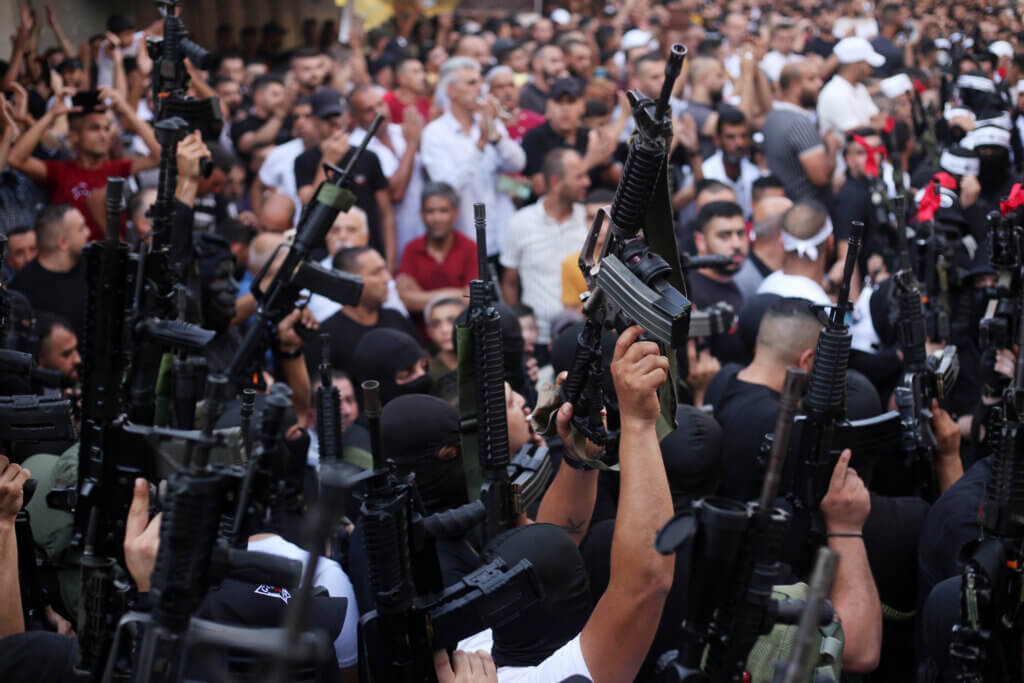
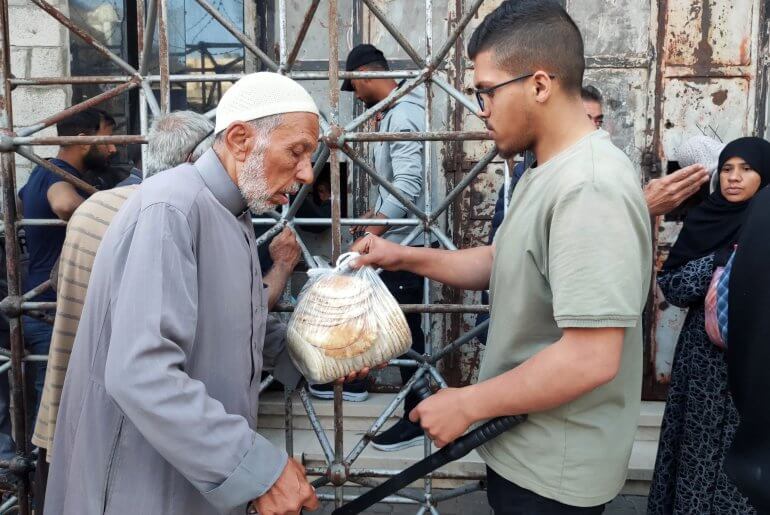
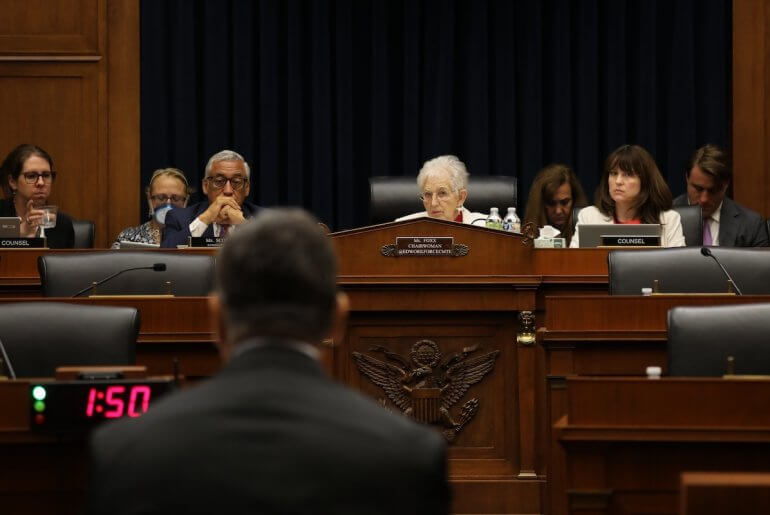
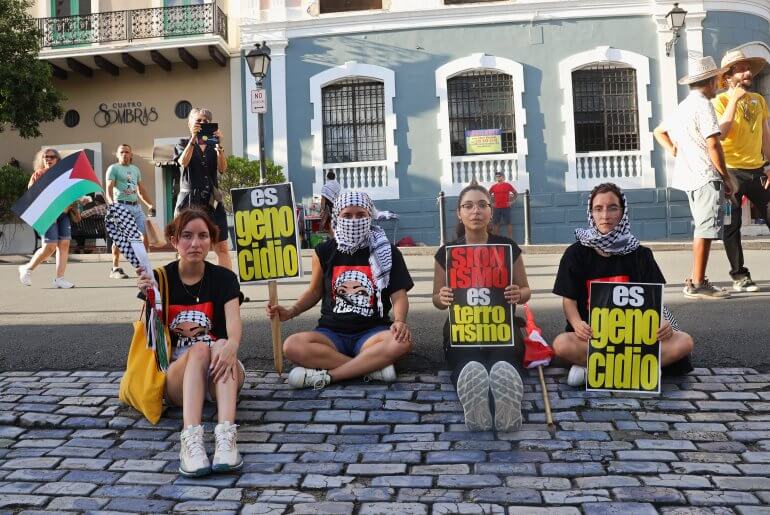
Excellent article. It is also excellent that there is now the beginnings of serious resistance. It is or should be now clear to all that the Palestinian Authority is a quisling authority and for groups like Britain’s Palestine Solidarity Campaign to refuse to call them what they are is a disgrace.
“Settler-colonialism” = ethnic cleansing!
I repeat my point of a month ago — if these Palestinian fighters have all these high-powered weapons as shown in photographs, why are virtually all casualties Palestinians? Where are they engaging w the IDF? What are they shooting at? Ridiculous.
The Palestinian people would be served through a democratic government. A leader elected after a vigorous campaign period, could establish consensus for a vision. It could establish a central authority with the necessary “one gun” policy. The current situation is reactive and has potential for long term disaster, giving Israel trump cards to rearrange as desired.